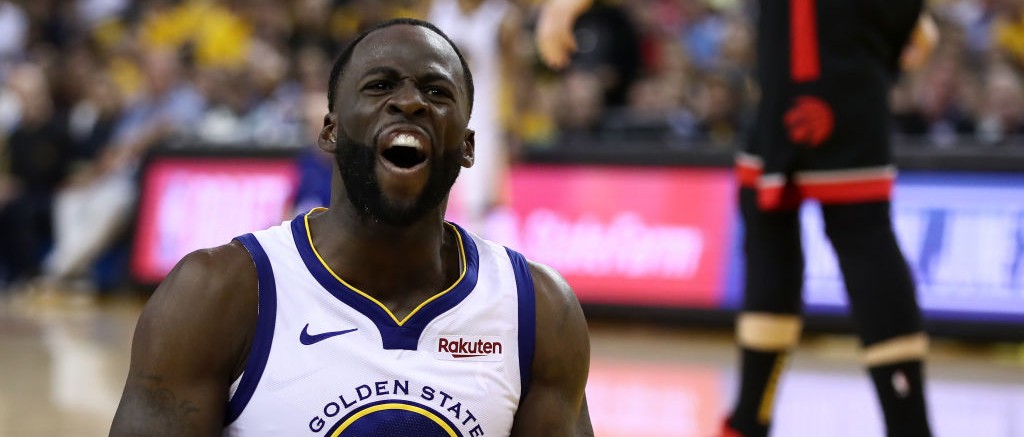The Fair Pay for Play Act a.k.a. Senate Bill 206 a.k.a. the piece of legislation LeBron James had California Governor Gavin Newsom sign into law while sitting in a barber chair on his show, ‘The Shop’, could stand to historically change the livelihood of college athletes and the way the NCAA operates, assuming it holds up against the assured court challenges to come.
The bill essentially allows athletes enrolled in California colleges, member schools of the NCAA or not, to earn compensation the way a professional athlete would: through endorsement deals, the notoriety and respective usage of their names, and licensing contracts that would earn them money. Athletes would also be entitled to hire an agent or representation to facilitate these agreements.
The bill is a progressive one and aside from the very public, ongoing support of James, who has spoken out against the NCAA for the autonomy it has denied college athletes, has gained recent public and explicit support from the outspoken, and usually correct in these things, Draymond Green.
In a crack of dawn, on-air interview, Green told CNN the bill was a “huge step in the right direction”, in the same breath referring to the NCAA as “the dictatorship [that] wants to go by the same system that’s been broken for years.”
"The NCAA can go and make a ton of money off these student athletes — that's a dictatorship." Draymond Green, three-time NBA champion and Golden State Warriors power forward, reacts after California passes a law that allows college athletes to get paid. https://t.co/41ra18iFRn pic.twitter.com/R5T9Ma2nhI
— CNN (@CNN) October 2, 2019
When asked to clarify what he meant by calling the NCAA that, he was beautifully explicit:
It’s their way or no way. If a kid is broke in college, can’t find food, don’t have the money to get food, don’t have time to get a job, that kid is not allowed to take money from pretty much anywhere outside of family or, you’re ineligible. You’re suspended. But yet these colleges, or the NCAA, can go and make a ton of money off these student athletes. That’s a dictatorship. ‘I’m going to tell you exactly what I want you to do, and I’m going to take all of the profit.’
An argument is sort of made in rebuttal that hopeful athletes willingly choose to attend these colleges, versus those unlucky enough to simply be born into your run-of-the-mill dictatorship. The comparison is not great, and Green offers a quick escape hatch into the heart of it by asking what is the alternative for these athletes? There will be such a small percentage of them, in any sport, who are able to go pro. It will have to do with talent, but also means, financial support, and personal circumstance. The Fair Pay for Play Act at least offers compensation for the work being done in real time, without hedging bets on an uncertain future that could be blocked by ineligibility or injury.
There is mention made that the introduction of this bill in California is a tremor of the coming cataclysmic shift that will signal the end of the NCAA, instead of it simply signalling a necessary and overdue change in the way the organization operates. The easy thing to target is the assumption that once being paid, why would a college athlete need to attend to their education any longer, specifically their classes. Aside from this being something the lawmakers behind Bill 206 have probably thought of, Green skewers the suggestion by pointing out many college students have jobs while attending school, making money and still going to class. Not as much money as a college athlete could stand to make with the new legislation in place, certainly, but that legislation wouldn’t make it so college athletes did not have to “do their jobs” to receive compensation. Moreover, in order to be paid for their likeness, college athletes would have to remain eligible, ensuring the name and personality they stood to profit from stayed attractive to sponsors.
With that, Green essentially wraps the whole thing in a basketball shaped package and sends it, express mail, to anyone still questioning why developing athletes that the NCAA makes millions off of every year aren’t entitled to a fraction of that payout.







